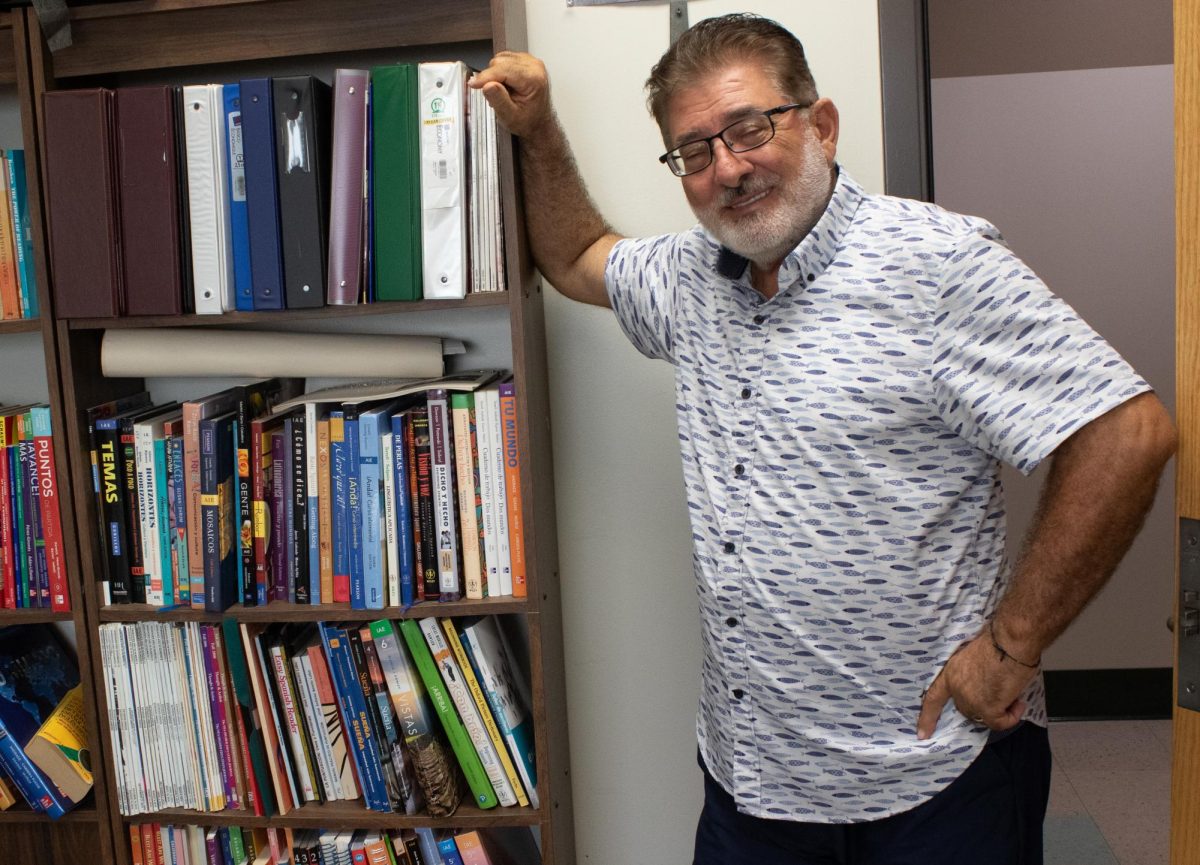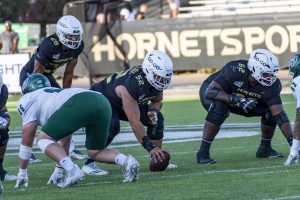California Legacy Project receives funding
September 17, 2009
The National Science Foundation (NSF) awarded Sacramento State and Humboldt State a $3 million grant to create digital media in order to draw people out of their homes and into nature as part of a new program dubbed the California Legacy Project.
“Our collaboration is providing a powerful means of harnessing new digital media to help connect people with nature,” said James Baxter, associate professor of biology at Sac State and director of the Legacy Project.
The $3 million grant is the highest award that the NSF awards for informal science education programs and is a major source of funding for the California Environmental Legacy Project.
“We have assembled an expert team of scientists, educators and media professionals to craft engaging and educational science media,” Baxter said.
The aim of the project is to inspire and rekindle an interest in the natural world and to educate people and make them aware of their impact on nature, Baxter said.
Directors in charge of the Legacy Project applied for the grant and were selected.
“I applaud the faculty members involved in this project for their outstanding dedication to science education and environmental awareness. Their work is helping to keep the California State University at the forefront of the most important issues facing California,” said Sac State President Alexander Gonzalez.
The education will hopefully enable people to make more informed choices in their behavior that affects nature, Baxter said. One of the desired outcomes is to raise awareness of the problem people are creating and to inspire changes in behavior.
Baxter used the example of past changes, such as the increases in recycling and hybrid cars on the road, as a result of education and people becoming aware of what they can do to make a difference.
The project will examine and test the use of this media to achieve the goal of advancing the informal field of education. An independent evaluator will measure the effectiveness of the media tools so that the project can be used as a national educational model.
“Sac State is poised to be a leader in science education nationally,” Baxter said.
The California Environmental Legacy Project started several years ago and is a statewide collaboration among scientists, educators and media professionals. These include higher education instructors, scientists, California State Parks, the National Park Service, science museums, the U.S. Geological Survey and the California Public Television Consortium.
According to the project’s website, “The time is right for a new type of environment program: one that doesn’t scold or nag, but offers a comprehensive and thought provoking exploration of environmental change – its causes, its consequences and its opportunity.”
The project will develop three main instructional components.
The first is a two-hour public television documentary, “Reinventing California,” that will explore California history and our relationship to a changing environment. The film is due out in the fall of 2012.
The second component, The Changing Places Initiatives, will use short films, podcasts and print media for parks, museums and science centers at regional sites such as Point Reyes, Lassen Volcano and The Redwood Forest.
The third component is an online education portal designed for use by educational professionals or others that will provide access to digital learning systems such as multimedia content, searchable databases, lesson plans, interactive maps and online learning communities.
Sac State is the lead institution on the project and will receive $2 million for developing the documentary and the educational portal.
“In my eyes, the Legacy Project is an example of the power and potential of connecting parks and protected areas with school curriculum,” said David Rolloff, associate professor in the department of recreation, park and tourism administration. “But more importantly, it looks like it will help young people connect with parks and natural places earlier in life.”
Humboldt State will receive $1 million to complete a separate component of the project, and Jeffrey White, the co-director of the project who is an associate professor of biology, will oversee that part.
An international search was conducted to select the creative partners for the project and a local Sacramento filmmaker, Kit Tyler, was selected to produce and direct the film. David Scheerer, professor of film at Humboldt State, was selected to produce the Changing Places Initiatives.
Baxter said that is was important to find the right creative fit for the film so that it will be driven by science, and be a “creative engaging narrative” while avoiding the “creative kinds of decisions that can cloud the science.”
“I intend to use these resources in my teaching and I would hope that other instructors also find value in using them.” Baxter said. They are hopeful and promote the idea of the “power of one: that one person, idea, movement, place or effort can make a difference.”
Baxter said that there is a national and international trend of a decreasing number of people spending time in nature and also a decreasing number of visitations to state parks.
“I have no doubt it (the project) would increase interest in parks and could be critical in reversing a trend of young people getting less and less contact with nature. Increased visits to parks would seem a natural result,” Rolloff said. “And hopefully we’d get some healthier kids as another benefit.”
Baxter said the project could use volunteers. He encourages students with various experiences or interests such as photography, media, and recreation, park and tourism studies majors to get involved with the project.
Once this project is completed, the Legacy Project will be moving on to other areas in the state to create educational materials, Baxter said.
The project hopes to enhance awareness that California has changed in the past and continues to change.
“We have choices,” Baxter said. “How are we going to interact in ways with the environment?”
Angel McCullar can be reached at [email protected].























































































































